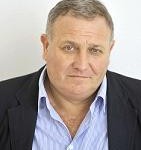Branded content more valuable than advertising: BBC’s Paul Gibbs
 The head of programs at BBC World News Paul Gibbs says corporations must realise that entertaining branded content can provide more value than traditional advertising.
The head of programs at BBC World News Paul Gibbs says corporations must realise that entertaining branded content can provide more value than traditional advertising.
“A good, entertaining program, which is appreciated by the audience, will give as much value to a company as content that reflected their actual activities,” Gibbs told Encore.
According to Gibbs, it’s still early days for branded content, and most companies expect such programming to reflect exactly what the corporation is about. Executives believe branded programs should have a direct line to their patron companies, “to have their DNA somewhere”.
BBC Worldwide is currently working on a number of branded programs, including The Real… and Formula for Success.

